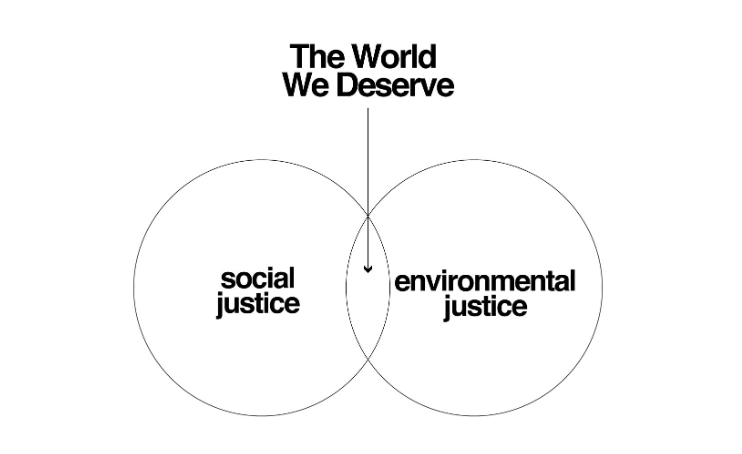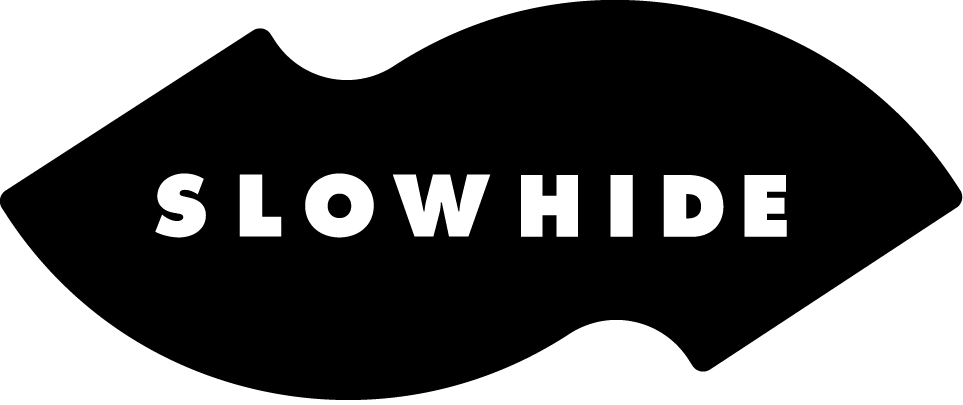Slow Factory's Sustainable Standard: Your Climate Compass
Slow Factory’s mission is to ensure a smooth transition towards climate positive systems & culture that are good for people and good for the planet.

The Slow Factory builds and communicates sustainability strategies that have widespread, long term impact.
*Sustainable Standard *is a new certification program where brands commit to human rights and environmental issues through equity-centered, science-based practices. Current conversations around sustainability are often saturated, misinformed and overwhelming. Brands that commit to the Sustainable Standard join Slow Factory’s growing and global social-environmental justice coalition while also agreeing to sharing their goals publicly and working alongside our team on an individual climate positive strategy.
Sustainable Standard
I. Identifying Your Environmental Impact
The Collective Problem: Brands must decrease their carbon footprint, water usage, ocean contamination, resource extraction, material usage, waste accumulation, manufacturing processes and transportation emissions.
The Slow Factory Toolkit:
- Develop LCA: Data collected via a life cycle assessment, identifying and analyzing
- Analysis of Materials: Measure material impact & use data to strategize solutions
- Waste Evaluation: Asses waste output & provide waste-led design strategy to reduce impact
- Carbon Assessment: Quantify carbon footprint & develop carbon negative, climate positive solutions
II. Quantifying Your Social Impact
The Collective Problem: Brands must collect data, investigate and quantify the brand’s corporate structure, manufacturing process, and sales and marketing practices, and then develop equity-centered solutions including education, paid apprenticeships, and culturally-relevant partnerships.
The Slow Factory Toolkit:
- Analyze Labor Practices: Analyze the supply chain and ensure no labor exploitation has occurred, whether forced, or below-living wage.
- Address Power Redistribution & Structural Inequality: Create programs to increase the number of BIPOC, disabled and LGBTQIA people in leadership positions in your organizations and all related supplier and client organizations.
- Downstream Social Impact: Long-term effects of your impact on society — direct and indirect. Sustainability literacy, racial justice, impact on other industry players to improve their impacts.
FAQ
What is the Sustainable Standard? A consumer-facing, recognizable stamp of approval showing that environmental and human rights are a core priority in the products and services of associated brands.
Who is it for? Members enrolling in the Sustainable Standard are brands deeply committed to reducing the harm they are responsible for at scale for years to come, and are looking for an organization to support them in doing so and able to communicate their efforts to the public. Members of the Sustainable Standard are part of a coalition that together benefit in sharing knowledge, best practices and regenerative networks that allow them to continue their journey in sustainability and creating climate positive solutions as a community of thought leaders.
How does it work? A yearly program that gathers monthly donations from a broad consortium of brands, providing them with strategy and implementation guidelines for social and environmental practices. The year starts with each participant laying out their current challenges and goals with a robust framework, setting goals and targeting specific focus areas.
We establish a series of goals that are attainable by the group by the end of the certification year. Slow Factory will be supporting the members of Sustainable Standard in achieving their goals on time, and in communicating their goals to the public. Slow Factory will also provide members of the Sustainable Standard the ability to calculate their Life Cycle Analysis and to be able to make more informed decisions based on data.
What does LCA mean for your business? Life Cycle Analysis has become the singular way to calculate carbon footprint as well as toxic waste and overall climate impact for a company to make educated decisions based on the data they are collecting for their product production. Full on-the-ground and detailed Life Cycle Analysis is a costly endeavor and can be inaccessible to smaller brands, therefore there are more generalized methods—still specific and customized—that can provide a lot of benefit for smaller medium brands in order to improve their production cycles and save money and time all the while being less harmful to the environment. LCA can also be a great way to show sustainable practices to your audience outside of marketing claims. It is a scientific approach after all and can be very useful for both brands and consumers to understand what the climate impact is for each item.
How will members be charged? Brands are charged based on their overall revenue for core membership benefits, and then additional services depending on the size of their teams and the kind of work they request and require.
How long is the certification for? The certification is valid for 12 months, and renews at the end of each cycle based on reporting and updating progress and goals. The certification has set criterias for each year and will be specific to each company’s situation and progress.




